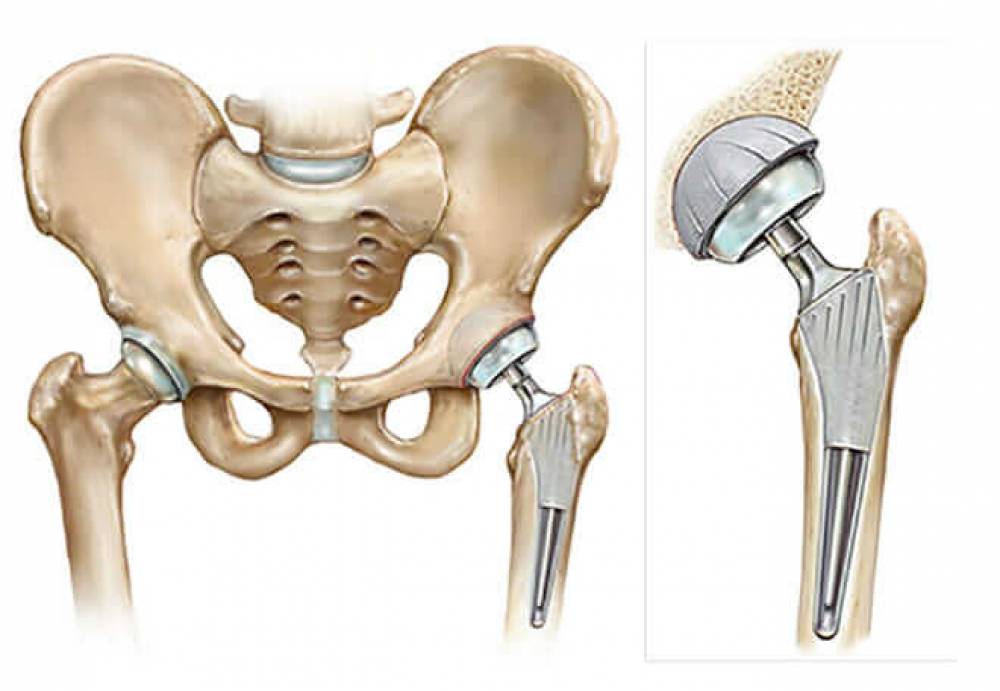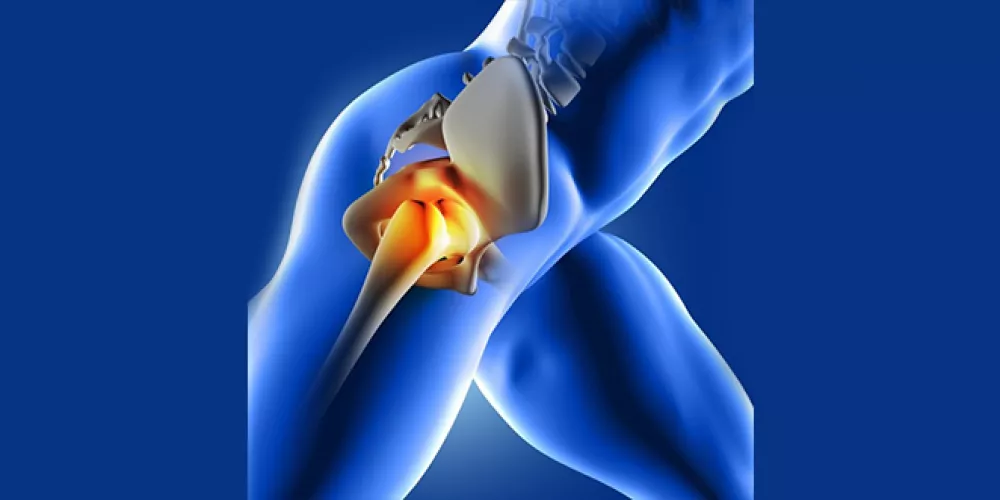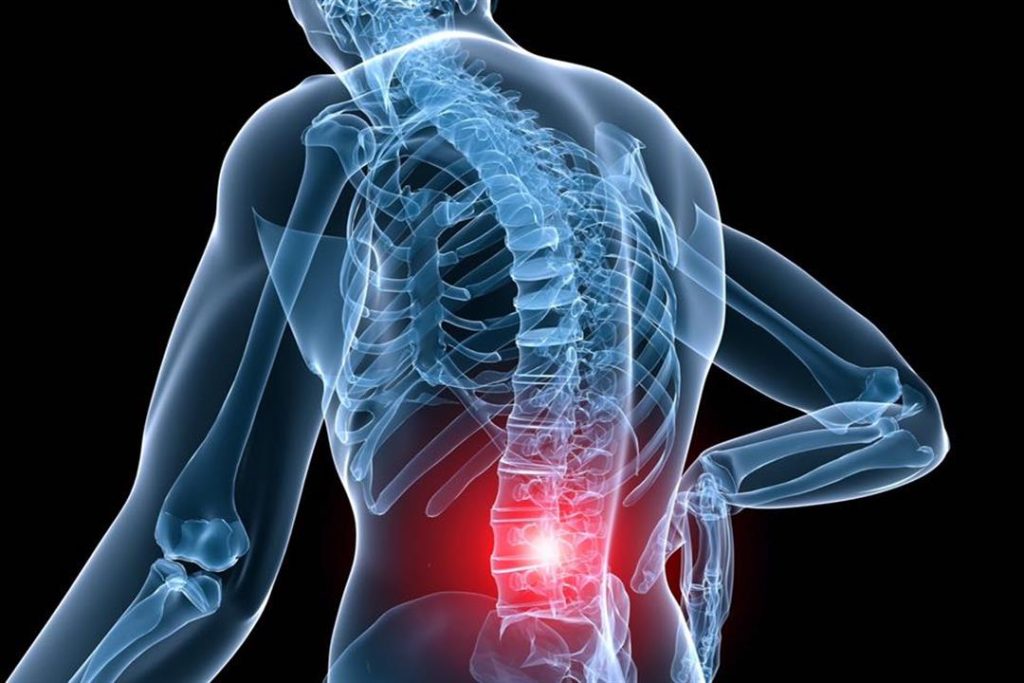Causes of Shoulder Pain and Who is the Specialist for Shoulder Pain Treatment?
أخر تحديث :

Causes of Shoulder Pain
Shoulder pain is a common issue that many people may experience. It can be caused by various factors, some temporary and others chronic. Understanding these causes is important for determining the appropriate treatment and alleviating pain. In this article, we will discuss some common causes of shoulder pain.
- Muscle Strain: Shoulder pain can result from muscle strain in this area. Muscle strain can occur due to improper movements, such as lifting heavy objects incorrectly or performing repetitive movements incorrectly.
- Arthritis: Shoulder pain may be due to arthritis, such as rheumatoid arthritis or osteoarthritis. Arthritis can lead to shoulder swelling and limited mobility.
- Shoulder Sprain: Shoulder pain can be the result of a shoulder sprain, which refers to tearing of the ligaments or tissues surrounding the joint. A shoulder sprain can occur as a result of a climbing accident or a fall.
- Sports Injuries: Sports injuries like bruises or fractures in the shoulder can lead to pain. These injuries often require rest and treatment for recovery.
- Unhealthy Habits: Shoulder pain may be caused by unhealthy habits such as sitting for extended periods in an improper posture or using a mobile phone in an awkward position. These habits can put extra pressure on the shoulders and cause pain.
- Aging: Over time, the shoulder joints begin to wear down and lose flexibility, leading to chronic shoulder pain. This may partly result from aging, bone and tissue damage.
Who is the Specialist for Shoulder Pain Treatment?
If you are experiencing shoulder pain, it is advisable to consult with an orthopedic doctor or a specialist in sports medicine. They can diagnose the underlying cause of your shoulder pain and recommend the appropriate treatment, which may include physical therapy, medication, or in some cases, surgery. Seeking professional medical advice is essential to address and manage shoulder pain effectively.
When Is Shoulder Pain Serious?
A person may experience shoulder pain from time to time, but is this pain considered serious? There are several factors to consider when someone is experiencing shoulder pain to determine its severity.
Firstly, the intensity of the pain should be taken into account. If the pain is sharp and severe, it may be indicative of a serious injury such as a bone fracture or ligament tear. It is essential to seek immediate medical attention to assess the condition and take necessary measures.
Secondly, the history of the injury should be considered. If there is a history of a previous shoulder injury, the current pain may be related to that previous injury. In this case, it is advisable to consult a rehabilitation specialist or physical therapist to evaluate the situation and provide appropriate treatment.
Thirdly, attention should be paid to the presence of additional symptoms. If a person experiences shoulder pain along with other symptoms such as numbness or tingling in the limbs, there may be nerve involvement. A doctor should be consulted to determine the cause of these symptoms and guide the appropriate treatment.
In conclusion, shoulder pain can have various causes ranging from muscle tension and inflammation due to improper shoulder use to serious structural injuries. Therefore, it is always recommended to visit a doctor when experiencing shoulder pain to assess the condition and ensure timely and appropriate treatment if necessary.
How to Get Rid of Shoulder Pain?
Shoulder pain can be extremely bothersome and painful, affecting your daily life, sleep, and mobility. If you are experiencing the discomfort caused by shoulder pain, don’t worry, there are several ways you can follow to alleviate this pain and improve your quality of life. In this list, we will present a set of tips and exercises that you can practice to relieve shoulder pain.
Shoulder Stretching:
- Stretch your right shoulder by moving it backward and forward, then do the same with your left shoulder.
- Gently move your shoulder in a reasonable circular motion clockwise and counterclockwise.
- You can also use resistance bands or elastic straps for stretching exercises.
Muscle Strengthening:
- Perform regular exercises to strengthen the muscles in your shoulders, such as lifting light weights.
- You can also use a resistance band or kettlebells to strengthen your muscles.
- Don’t forget to include exercises for the muscles surrounding the shoulders, such as the back and chest muscles.
Cold Application:
- Use an ice pack or a towel soaked in cold water and place it on the shoulder area for a duration ranging from 10 to 15 minutes.
- This treatment can help reduce inflammation and alleviate pain.
Massage Therapy:
- You can gently massage the shoulder area using vegetable oil or a moisturizing cream.
- Use circular motions or direct pressure to improve blood flow and relieve tension.
Visit a Physical Therapist:
- It may be a good idea to visit a physical therapist to evaluate and treat your shoulder pain problem.
- They may suggest specific exercises and therapy sessions to strengthen the muscles and improve overall shoulder mobility.
What Are the Symptoms of Shoulder Nerve Inflammation?
Many people may suffer from nerve inflammation in the shoulder, a condition caused by infections or pressure on the nerves in this area. This condition can be painful and can lead to difficulty in movement and weakness in the shoulder. Below are some common symptoms of nerve inflammation in the shoulder:
- Sharp Pain: Patients may experience sharp and intense pain in the affected shoulder, and this pain may extend to the arm and hand. The pain can be continuous or episodic, increasing when attempting to move the shoulder.
- Muscle Weakness: Nerve inflammation in the shoulder can affect the muscle strength in this area. In addition to pain, patients may notice weakness in their ability to move the shoulder and perform daily activities.
- Tingling and Numbness: Patients may experience tingling or numbness in the affected arm and hand due to nerve compression. This tingling sensation can be continuous or intermittent.
- Difficulty in Movement: Many patients have difficulty in moving the affected shoulder, affecting the movement of the arm and hand in general. It may be challenging to lift heavy objects or hold things properly.
- Swelling and Redness: In some severe cases, patients may notice swelling and redness in the affected area. This swelling can be accompanied by severe pain and irritation.
If you experience any of these symptoms, it is important to consult your doctor for an accurate diagnosis. It may require further tests such as X-rays or MRI scans to determine the cause and extent of nerve inflammation in the shoulder. Your doctor may recommend treatments such as medication, physical therapy, or even surgery, depending on your individual condition.
Can Vitamin D Deficiency Cause Shoulder Pain?
Vitamin D is considered one of the essential vitamins for overall health. It plays a significant role in promoting the optimal absorption of calcium and phosphorus from the intestines, thus contributing to bone formation and strength. However, you may have a legitimate question about whether vitamin D deficiency can cause shoulder pain.
The fact that there is a link between vitamin D deficiency and shoulder pain should not be ignored. Research indicates that vitamin D deficiency can be associated with a number of health issues, including muscle and bone pain.
One possible reason for this is that vitamin D affects muscles, nerves, and the immune system, and it can lead to muscle weakness, sudden muscle contractions, and muscle pain. Additionally, some suggest that vitamin D deficiency may increase the risk of myositis, a condition that causes muscle pain and stiffness.
It is worth noting that this relationship does not necessarily mean that vitamin D deficiency is the primary cause of shoulder pain. There may be other contributing factors to this pain, such as muscle strain, shoulder joint injuries, or arthritis. Therefore, it is always advisable to consult a specialist to assess your condition and diagnose the underlying causes of your pain.
To determine your vitamin D levels, you can request a blood test from your healthcare provider. If it turns out that you have a vitamin D deficiency, your doctor may prescribe vitamin D supplements to address the deficiency. Ultimately, while there is a link between vitamin D deficiency and shoulder pain, it cannot be conclusively stated that vitamin D deficiency is the primary cause of the pain. Consulting with a healthcare professional is essential to assess your condition and ensure an accurate diagnosis of the pain you are experiencing.
How Do I Know if Shoulder Pain Is Related to the Heart?
There are several signs that may indicate a relationship between shoulder pain and the heart. Shoulder pain can be one of the potential symptoms of heart problems. The heart and shoulders are part of the same circulatory and nervous system in the body, so pain can sometimes travel between them.
If you have left shoulder pain, there could be several reasons behind it, some of which may be related to the heart, while others are not. However, any type of shoulder pain should not be ignored, especially if it is accompanied by other symptoms that may indicate a heart issue.
One common reason for left shoulder pain is coronary artery disease. This occurs when there is a blockage in one of the coronary arteries that supply blood to the heart muscle. Sometimes, people may feel left shoulder pain before experiencing chest or left arm pain, a phenomenon known as “referred pain.” Therefore, shoulder pain can be a sign of a heart problem.
Additionally, shoulder pain may result from cardiac muscle pain. This can occur due to muscle tension or stress on the heart. Shoulder pain could serve as an early sign of this issue, as the pain may start in the shoulder before other heart-related symptoms appear.
However, an accurate diagnosis and treatment should be provided by a healthcare professional. Determining the cause of shoulder pain typically requires diagnostic processes such as clinical examinations, medical history, and medical imaging. It is essential for individuals experiencing persistent and unusual shoulder pain to follow up with a doctor to rule out serious heart conditions.
In conclusion, shoulder pain can be related to the heart due to various reasons. It is crucial to seek appropriate medical consultation to diagnose the condition and determine the appropriate treatment.
What Causes Pain Between the Shoulder Blades in the Back?
There are many reasons that can lead to pain between the shoulder blades in the back. Among these causes, muscle tension can be one of the most common culprits for this type of pain. When the muscles in this area experience tension or stress, it can put pressure on the nerves and surrounding tissues, resulting in pain.
Additionally, pain between the shoulder blades in the back may result from various diseases and medical conditions, such as fractured bones, herniated cervical discs, or issues with the spinal cartilage. Inflammation, such as arthritis and tendonitis, can also lead to pain in this area.
Furthermore, pain between the shoulder blades in the back can occur due to everyday activities we engage in, such as lifting heavy objects incorrectly, sitting for prolonged periods in poor posture, or making sudden and repetitive movements. All of these actions can place extra strain on the muscles and tissues in the shoulder blades and back, leading to the development of pain.
In addition to these causes, there are many other factors that can contribute to pain between the shoulder blades in the back, including genetic factors, lack of physical exercise, sleeping on an uncomfortable mattress, and using improper pillows.
To ensure an accurate diagnosis and treatment for pain between the shoulder blades in the back, it is best to consult a specialized doctor. The doctor may perform a comprehensive examination and necessary tests to diagnose the condition and identify the exact cause of the pain. Depending on the diagnosis, an appropriate treatment plan, including lifestyle changes, medical treatment, physical therapy, or alternative therapies, may be recommended.
Does Sleeping on the Shoulder Cause Pain?
Sleeping on the shoulder is a common practice among many people, especially when sharing a bed with a partner. However, can sleeping on the shoulder cause health problems? Does it affect sleep quality?
Sleeping on the shoulder may be comfortable for some, but it can lead to several health issues. It can exert extra pressure on the cervical nerve, leading to neck and shoulder pain. Some individuals may experience numbness and tingling in the arms and hands due to nerve compression.
Furthermore, sleeping on the shoulder over time can lead to spinal deformities. Uneven pressure on the spine during sleep can cause bending or misalignment. This can result in back and neck pain and difficulty in movement.
It’s essential to have a good and healthy sleeping position, where the body is in a comfortable and straight posture. Ideally, the head, neck, and back should be aligned, and the body should be supported by an appropriate pillow.
If you are fond of sleeping on your shoulder, it’s advisable to try not to focus on one side only but switch sleeping positions from side to side each night. You can also use a specialized pillow designed to support the neck and shoulder, which can reduce pressure and maintain spinal alignment during sleep.
Can Psychological Stress Cause Shoulder Pain?
Many people experience shoulder and neck pain, and psychological stress is one of the potential factors contributing to these pains. Considering our daily lives filled with demands and responsibilities, stress, anxiety, and psychological pressure can accumulate and affect the muscles in the body, especially in the shoulder region.
Psychological stress affects the shoulder in several ways. One of them is muscle tension, where the muscles in the shoulder involuntarily contract and tighten in response to stress and psychological tension. This muscle tension can lead to reduced blood flow to the shoulder area, resulting in pain and stiffness.
Additionally, psychological stress can also affect the central nervous system, disrupting the distribution of nerve signals in the body. This can cause disturbances in the functioning of nerves connected to the shoulder area, leading to pain and tension.
Moreover, psychological stress can increase the body’s response to pain, making shoulder pain more intense and sensitive in individuals experiencing emotional and mental stress.
To alleviate shoulder pain associated with psychological stress, it’s essential to adopt strategies for stress management and anxiety relief. These strategies may include practicing meditation and relaxation, engaging in regular physical exercise, maintaining a proper diet, and ensuring an adequate amount of rest and quality sleep.
Considering that psychological stress is an integral part of our lives, it’s crucial to respect and care for our overall health, including the shoulder region. Consulting a doctor and receiving appropriate treatment can also help alleviate shoulder pain associated with psychological stress and improve overall quality of life.
What Are the Symptoms of Shoulder Cold?
The shoulder is a sensitive area of the human body, and a person may experience various diseases and conditions that can affect it. One of these conditions is a cold shoulder, which can cause several symptoms that can be bothersome and affect a person’s quality of life.
Here are some common symptoms of a cold shoulder:
- Severe Pain: Pain is one of the most common symptoms of a cold shoulder. Individuals may experience sharp pain that worsens when they move their shoulder or perform any motion that requires the use of the cold shoulder.
- Swelling and Redness: People may notice that the shoulder is swollen and red. This redness may be evident, and the shoulder may feel hot, swollen, and sensitive to touch.
- Chills and Itching: Some individuals may experience chills and itching in the affected cold shoulder. These symptoms may be continuous or come and go repeatedly.
- Numbness and Tingling: Some people may feel numbness and tingling in the area of the cold shoulder. This sensation may be a mild tingling or a severe discomfort.
If you experience any of these symptoms, you may be suffering from a cold shoulder. It’s essential to consult a doctor to diagnose your condition and recommend appropriate treatment. The doctor can perform necessary tests and examine the shoulder to determine the cause of the symptoms and prescribe the appropriate treatment plan.
It’s also a good idea to take some appropriate precautions to reduce the severity of the symptoms and expedite the healing process. You can perform shoulder-strengthening exercises, gently stretch the muscles, and use ice to alleviate pain and reduce inflammation.
Who Is the Specialist in Treating Shoulder Pain?
Dr. Amr Amal, a specialist in treating shoulder pain, is considered an excellent and professional physician in his field. A doctor specialized in treating shoulder pain plays an essential role in the healthcare community, diagnosing and treating a wide range of shoulder-related conditions.
Dr. Amr Amal has extensive experience in this field, having obtained a Bachelor of Medicine and Surgery from a prestigious university. He also completed a Master’s degree in Orthopedic and Joint Surgery, specializing in treating shoulder pain.
Using his skills and in-depth medical knowledge, Dr. Amr Amal evaluates the patient’s condition and identifies potential causes of shoulder pain. He uses clinical examination, radiological analyses, and shoulder imaging to arrive at an accurate diagnosis.
In addition to diagnosis, Dr. Amr Amal offers a variety of treatments and procedures aimed at relieving pain and restoring shoulder function. This includes physical therapy, medication, targeted injections, and necessary surgical interventions.
As a physician committed to patient comfort, Dr. Amr Amal also provides patients with health advice and guidance on how to manage shoulder pain and reduce daily discomfort. He aims to raise awareness among patients about preventive measures and self-care to maintain the health of their shoulders.







